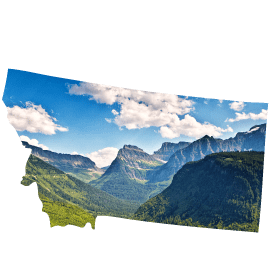Secondary Teacher Preparation in Social
Studies: Montana
Delivering Well Prepared Teachers Policy
Analysis of Montana's policies
Montana offers secondary certification in broad-field social studies, which must include a concentration in history and government and additional coursework in economics, geography, psychology and/or sociology. Teachers with this license are not limited to teaching general social studies but rather can teach any of the topical areas. Candidates are not required to pass a subject-matter test.
Montana does not articulate any specific coursework or testing requirements for middle school social studies teachers, who are allowed to teach on a generalist K-8 license (see Goal 1-E).
Recommendations for Montana
Require secondary social studies teachers to pass tests of content knowledge for each social studies discipline they intend to teach.
Although coursework plays a key role in teachers' acquisition of content knowledge, it should be accompanied by the requirement of an assessment, which is the only way to ensure that teachers possess adequate knowledge of the subject area.
Require middle school social studies teachers to pass a test of content knowledge that ensures sufficient knowledge of social studies.
State response to our analysis
Montana declined to respond to NCTQ's analyses.
Select another topic
Delivering Well Prepared Teachers
- Admission into Preparation Programs
- Elementary Teacher Preparation
- Elementary Teacher Preparation in Reading Instruction
- Elementary Teacher Preparation in Mathematics
- Middle School Teacher Preparation
- Secondary Teacher Preparation
- Secondary Teacher Preparation in Science
- Secondary Teacher Preparation in Social Studies
- Special Education Teacher Preparation
- Assessing Professional Knowledge
- Student Teaching
- Teacher Preparation Program Accountability
Expanding the Pool of Teachers
Identifying Effective Teachers
- State Data Systems
- Evaluation of Effectiveness
- Frequency of Evaluations
- Tenure
- Licensure Advancement
- Equitable Distribution

